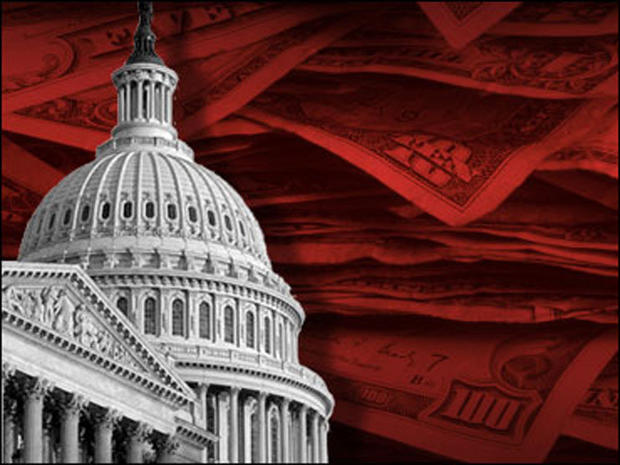Lawmakers push for stronger STOCK Act
The Senate on Monday nearly unanimously agreed that it should consider a bill to stop so-called "congressional insider trading," but the bill won't pass without debate about whether it goes far enough to bring more transparency into the political process.
House Majority Leader Eric Cantor on Tuesday said that if the Senate doesn't pass a strong enough STOCK Act -- specifically, a bill that holds the executive branch accountable as well as Congress -- he'll bring his own bill to the House floor. The Republican leader also said Congress members should be required to disclose their investments more than once a year.
Other portions of the bill could also inspire debate. For instance, the Senate version of the the STOCK Act (or the Stop Trading On Congressional Knowledge Act) waters down a provision that the bill's original sponsor, Rep. Louise Slaughter, D-N.Y., has called critical -- a provision to regulate the burgeoning "political intelligence" industry. The senators who sponsored the newest version of the bill said Tuesday that they wanted to keep the bill simple so that it will pass quickly.
The STOCK Act is primarily a bill to stop "congressional insider trading," an issue brought to the fore by a CBS 60 Minutes report.
Like everyone else, members of Congress are subject to current insider trading laws. However, some contend that current insider trading laws do not apply to nonpublic information about current or upcoming congressional activity, since members of Congress aren't technically obligated to keep that information confidential. So, for instance, if a lawmaker learns an upcoming bill will grant a company a large government contract, which could boost that company's stock, he or she is free to buy that stock ahead of the bill's public introduction.
"There is a sense among people in this country that they don't have a fair shot when they see things that have transpired," Cantor told reporters today. "Whether it is with their investments in the financial services community, at all levels of government, they are beginning to hear stories about potential conflict of interest on the part of the people that they elect to represent them."
STOCK Act advances in the Senate
Congress: Trading stock on inside information?
CBSNews.com Series: United States of Influence
By a vote of 93 to 2, the Senate agreed to proceed with debate on the STOCK Act, and Cantor said he expects the Senate bill to be strengthened during floor debate, particularly as it applies to the executive branch.
"I can tell you first off, the bill does not adequately cover those connected with the federal government in the executive branch that are in positions with access and are privy to information that could be used to personally benefit those individuals," Cantor said.
Senate Majority Leader Harry Reid suggested today the Senate could agree to that amendment.
"I also think it's important that the executive branch of government play by the same rules," he told reporters today. "So what we do here, the executive branch of government should do also."
Meanwhile, Sen. Joe Lieberman, I-Conn., one of the Senate bill's sponsors, explained today why his legislation doesn't call for regulating the "political intelligence" industry.
"Political intelligence," now a $100 million-a-year industry, provides hedge funds and other investors with information about upcoming legislation that could impact stock prices. The original House version of the STOCK Act would make political intelligence firms register with Congress like lobbyists.
"These so-called political intelligence firms have operated quietly in the background without any oversight," Slaughter said in a hearing last month.
Lieberman told reporters today that the issue was much more complicated than simply clarifying that "insider trading" is illegal in Congress. For one thing, Congress would have to clarify who qualifies as part of the "political intelligence" industry and what exactly would be required of the industry.
"So, we thought that would take more time to answer those questions thoughtfully, and we didn't want to wait to report out the anti-insider trading bill," he said.
Lieberman said there are upcoming hearings on the issue, which could possibly be addressed in its own legislation later in the year. He did, however, say that the issue would come up once the Senate and the House start to merge their versions of the STOCK Act.
"Maybe we can find some common ground at that point, but I'm really focused as I think the three of us are, on making clear members of Congress or staff that deal with inside information for private profit are violating the law," Lieberman said.
With reporting from CBS News Capitol Hill Producers John Nolen and Jill Jackson.
